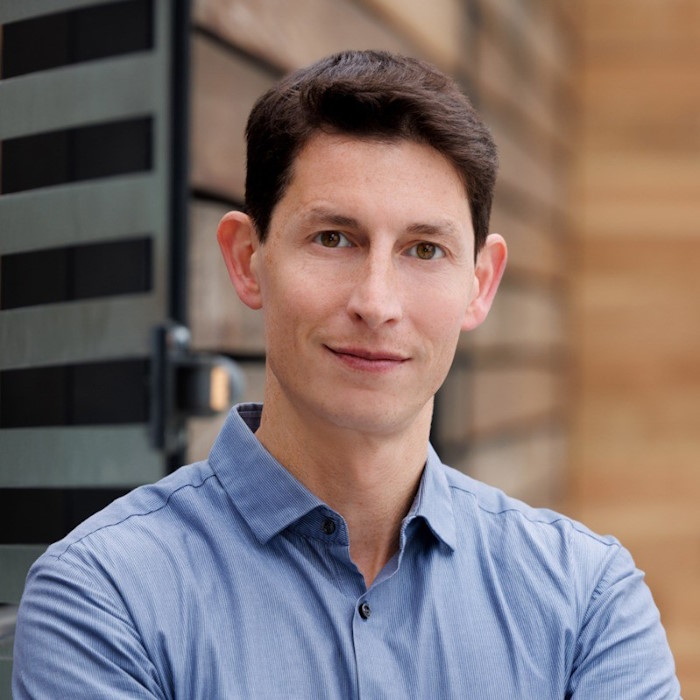Dr. Adam Freund
Adam Freund, Ph.D. is a Molecular Biologist, Biochemist, and Founder and CEO at Arda Therapeutics, a biotechnology company taking aim at chronic diseases and aging by eliminating the pathogenic cells that drive these conditions, using single-cell sequencing to characterize and target pathogenic cells to treat chronic diseases and aging.
Adam has over 18 years of experience in life science R&D, focused on experimental and computational biology to understand and modulate age-related diseases. He has published over 20 papers and patents, which have been cited more than 8,000 times.
Prior to founding Arda, he was Principal Investigator at Calico Life Sciences between 2014 and 2021, where he helped grow the company from 15 to more than 200 employees and initiated and led multiple therapeutic programs, several of which are now in the clinic. He started and led Calico’s most advanced anti-aging therapeutic program, a first-in-class biologic that neutralizes a validated aging pathway.
Within Calico, Adam founded and managed a research lab with the mission of developing interventions that slow or reverse aspects of aging. The lab utilized a wide variety of tools including small molecules, biologics, gene therapy, cell therapy, preclinical models, mouse genetics, human biospecimens, modern cell and molecular biology techniques, functional genomics (CRISPR/Cas9), single-cell RNA sequencing, genome-wide association studies, automated behavioral monitoring, high content imaging, FACS, machine learning, and bioinformatics.
Read MTOR regulates the pro-tumorigenic senescence-associated secretory phenotype by promoting IL1A translation, Mitochondrial Dysfunction Induces Senescence with a Distinct Secretory Phenotype, Targetable mechanisms driving immunoevasion of persistent senescent cells link chemotherapy-resistant cancer to aging, and Dual SMAD Signaling Inhibition Enables Long-Term Expansion of Diverse Epithelial Basal Cells.
Adam is Longevity Biotech Fellow at On Deck and Scientific Advisor at Etalon Diagnostic.
Adam earned his Ph.D. in Molecular and Cell Biology in 2010 from the University of California, Berkeley with his dissertation Signaling pathways that regulate cellular senescence. He earned his Bachelor’s Degree of Science in Materials Science and Engineering from Stanford University in 2005.
After his graduation, he became a Graduate Student where he worked in Judy Campisi’s Lab for more than five years, until the end of 2010, when he became a postdoctoral fellow at The Buck Institute for Research on Aging until 2011. He studied the role of inflammation in cellular senescence, cancer, and aging in Judy Campisi’s research group — a short-term continuation of graduate work.
Read Persistent DNA damage signalling triggers senescence-associated inflammatory cytokine secretion, Inflammatory Networks during Cellular Senescence: Causes and Consequences, and p38MAPK is a novel DNA damage response-independent regulator of the senescence-associated secretory phenotype.
In September 2011, Adam became Postdoctoral Fellow at the Stanford University School of Medicine in Steven Artandi’s Lab. He carried out research projects and collaborations in the field of aging and cancer biology, specifically focusing on whole-genome screening to identify novel upstream regulators of telomerase trafficking.
He developed the requisite technology, performed, and published the first whole-genome, high-content screen using an RNA localization readout. This screen identified a novel regulator of telomerase and clarified the mechanism of action of pathogenic mutations in TCAB1, which causes the human condition dyskeratosis congenita.
Watch Adam Freund presents at ARDD 2021 and Inhibition of longevity regulator PAPP-A modulates tissue homeostasis at ARDD 2020.
Read Lamin B1 loss is a senescence-associated biomarker, Glucocorticoids suppress selected components of the senescence-associated secretory phenotype, and Proteostatic Control of Telomerase Function through TRiC-Mediated Folding of TCAB1.
Read Automated, high-dimensional evaluation of physiological aging and resilience in outbred mice.
Visit his LinkedIn profile, ResearchGate profile, Google Scholar page, and CrunchBase profile. Follow him on Facebook, Live Forever Club, Instagram, and X.
